Donning the protective gear required to enter the pressurized hospital room of a COVID-19 patient has become second nature for Nao Watarumi.
The 38-year-old nurse was performing a routine check on a patient, a man in his 50s who had been receiving artificial ventilation for close to a week in the coronavirus ward of Itabashi Hospital in Tokyo.
“It used to take us a long time to gear up every time we needed to go in and out of a room to check on a patient, but now we can usually do it in less than five minutes,” she said after she emerged from the patient’s room and began to methodically remove her goggles, gown, face shield and a second layer of gloves.
“We’ve had lots of practice,” Watarumi said, grinning ever so slightly as she carefully disposed of everything in a sealed waste basket.
Not once did her gaze leave the patient.
Few can match the strength and stoicism of those who save lives for a living. But the physical, emotional and social burden shouldered by front-line workers continues to accumulate as the outbreak worsens.
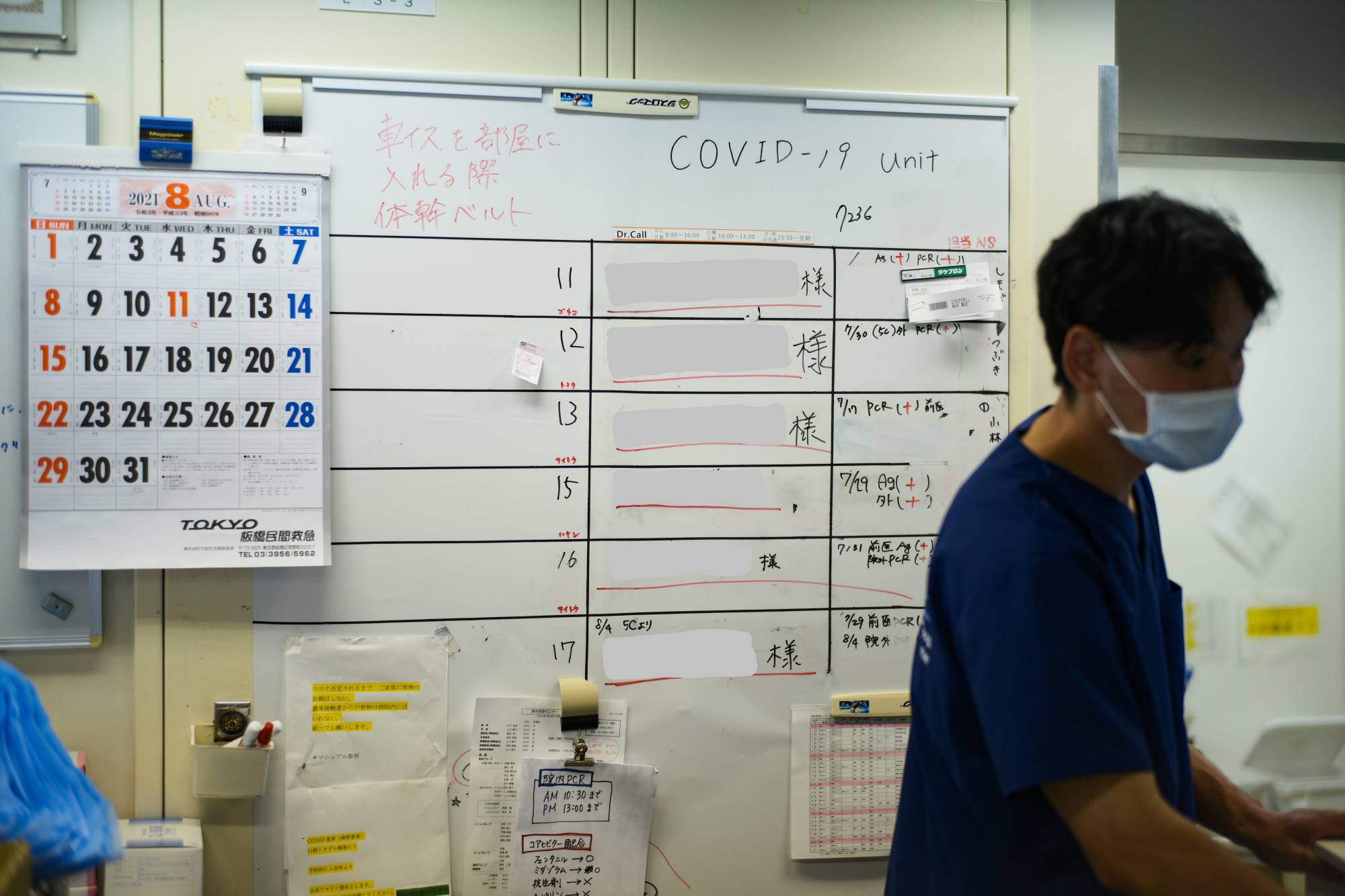
The Japan Times spoke to nurses in various fields of medicine — from general care, neonatal, cardiovascular, cancer and infectious disease wards, among others — some of whom were working at public institutions or in private practice, while others were freelancing or had quit their jobs.
Each had a different story to tell but they all recalled distressing stories that collectively demonstrated how the pandemic has upended virtually every aspect of their professional and personal lives. Most asked to remain partially or completely anonymous.
‘Endangered needlessly’
As if serving as the backbone of the country’s health care system during a pandemic wasn’t difficult enough, society has relied heavily on working, inactive and unemployed nurses to administer vaccinations at hospitals, clinics, gymnasiums, university campuses and other temporary inoculation sites across the country. Not only that, 7,000 doctors and nurses were recruited to provide support during the Tokyo Games, both at venues and the athletes village, while 29 hospitals were designated to treat athletes should they become injured, ill or infected.
The country’s decision to host the global sporting event during a pandemic drew strong opposition from the public — especially, it seems, among nurses.
“Nurses are expendable in the eyes of organizers and public officials,” said Mari Nagasawa, a 27-year-old nurse at a public hospital in Tokyo. “Human lives are being endangered needlessly.”
In July, Kurashiki Central Hospital published the results of a survey taken in March of medical workers involved in providing intensive care to COVID-19 patients across 15 prefectures. Of the 867 who responded, 24% said they were burned out and 14% reported depression. 85% said they were afraid of transmitting the virus to their family, while more than 42% said they wanted to leave their current post.
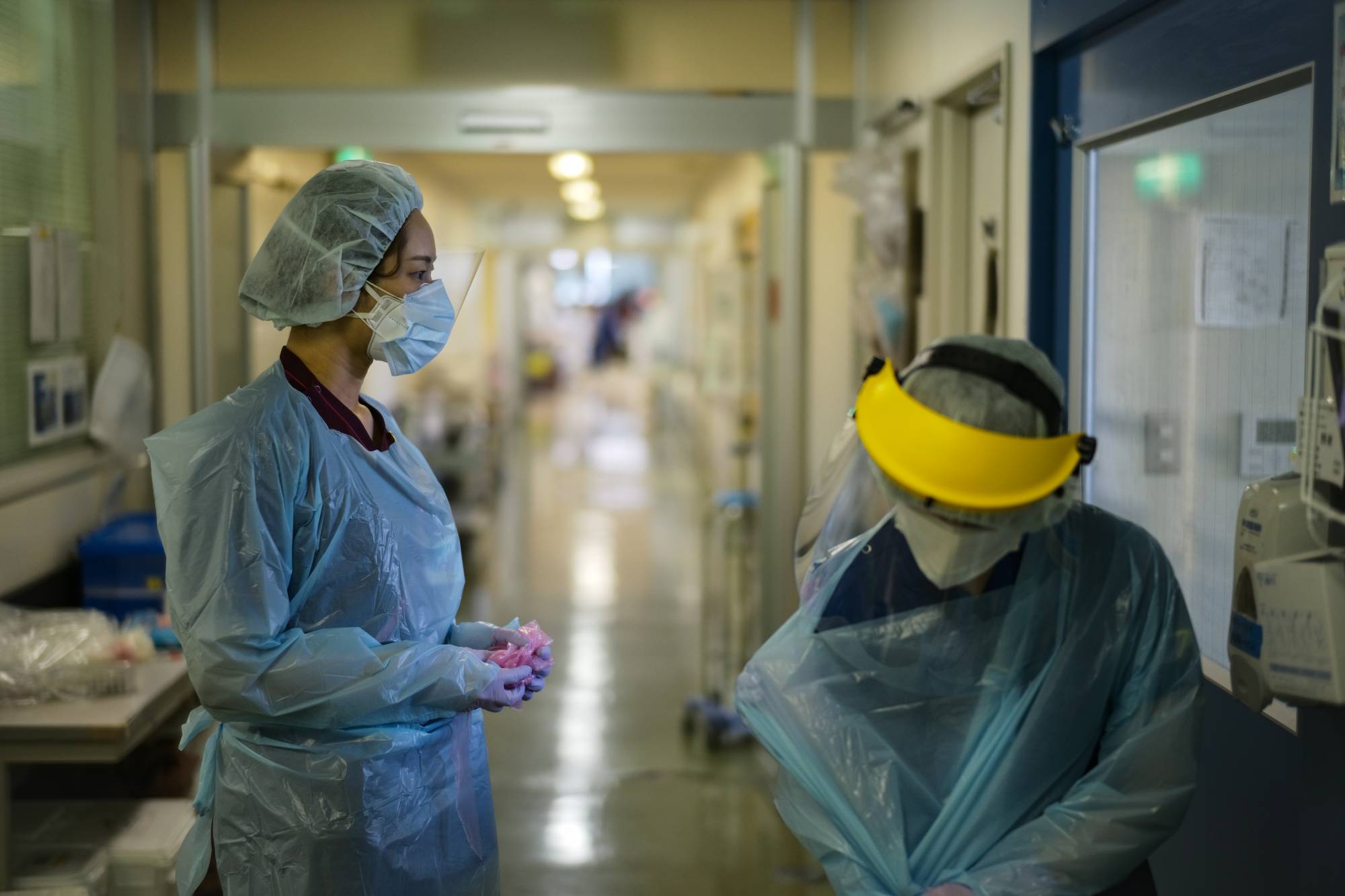


Hosting the Summer Games under these circumstances seemed to send a clear message to the country’s front-line workers.
In order to provide a platform for nurses — who are often discouraged from voicing their thoughts on political issues or participating in public discourse — Nagasawa started a Twitter account in May called Voices of Nurses, through which she has collected and published the stories, opinions and anecdotes of nurses and their grievances.
“There are many people out there who want to raise their voice but can’t,” Nagasawa said. “I wanted to provide a place for them to express those fears and frustrations, and to present those stories to society so that people might change their minds or gain some sympathy.”
It’s clear that even nurses who aren’t caring for COVID-19 patients have been and continue to be impacted by the pandemic, both professionally and personally.
Several of the nurses interviewed by The Japan Times had chosen to live separately from their families to avoid bringing the virus home, while others explained how their children had been bullied or become outcasts at school. Some said their employees were monitoring their social media accounts to see if they were going out or traveling.
Nosocomial outbreaks, or hospital clusters, which are most often triggered by an infected patient transmitting the virus to other patients or the nurses treating them, have forced countless hospitals to temporarily shut down entire divisions and send medical staff home to self-isolate for weeks.
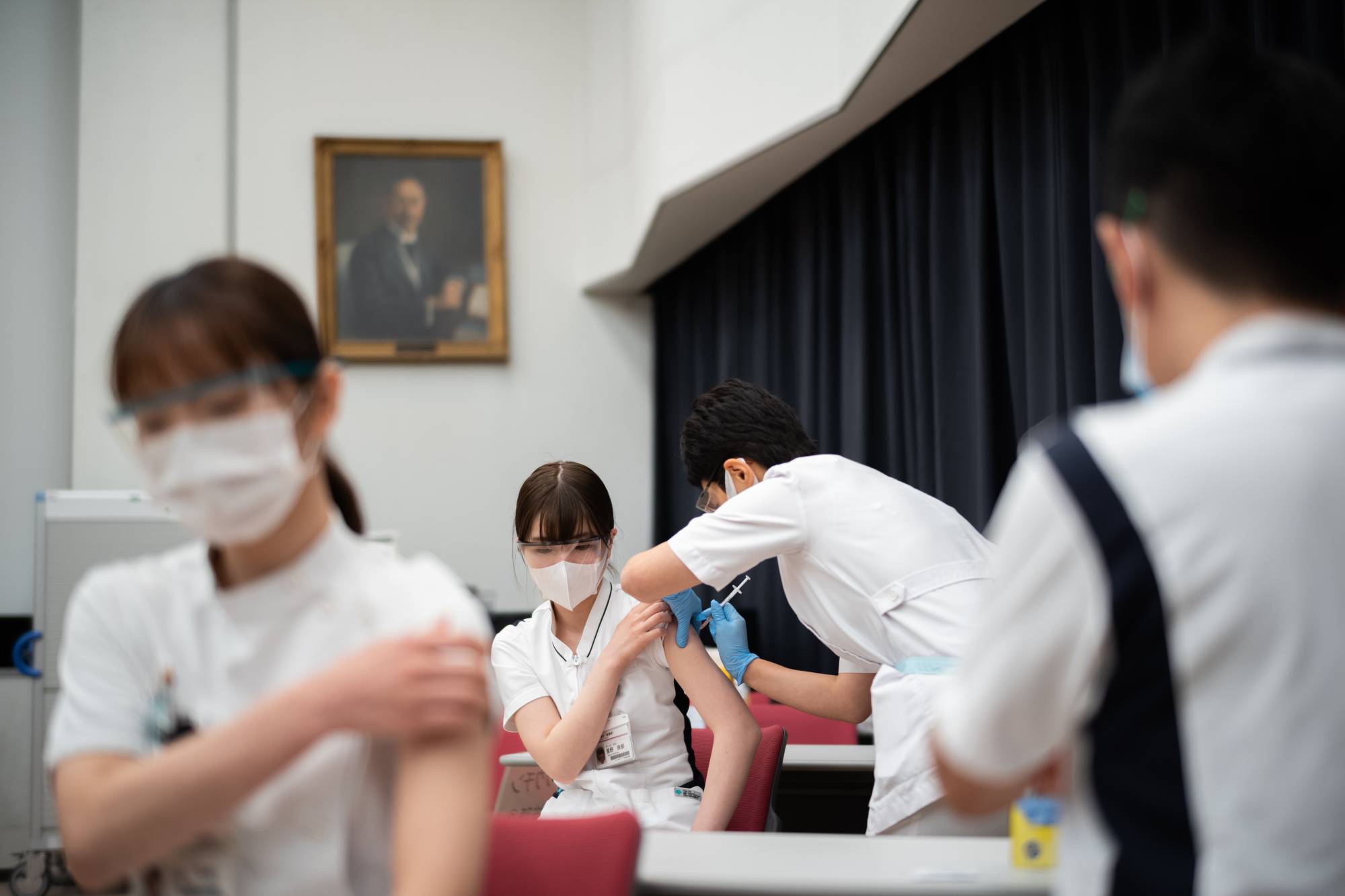


Even as the public is asked to stay indoors and isolate themselves, nurses are being held to a higher standard.
“We know why we have to do those things,” said Rina, 38, a nurse working in the COVID-19 ward of a public hospital in Tokyo. “We understand that, as nurses, many people will be affected if we become infected, but it’s just hard to keep it up over such a long period of time.”
A contentious shift
The coronavirus now threatens to inundate and incapacitate the country’s health care system once again as a new wave of the pandemic reaches a fever pitch.
On Monday, Prime Minister Yoshihide Suga announced that moderate COVID-19 patients will be asked to recover at home to prioritize the hospitalization of those suffering severe symptoms.
Suga said Tuesday that the central government will ensure that patients who require oxygen or have pre-existing medical conditions will still be hospitalized.
“All patients experiencing or at risk of developing serious symptoms will be hospitalized,” he said. “As new cases continue to rapidly increase, protecting the health care system is paramount.”
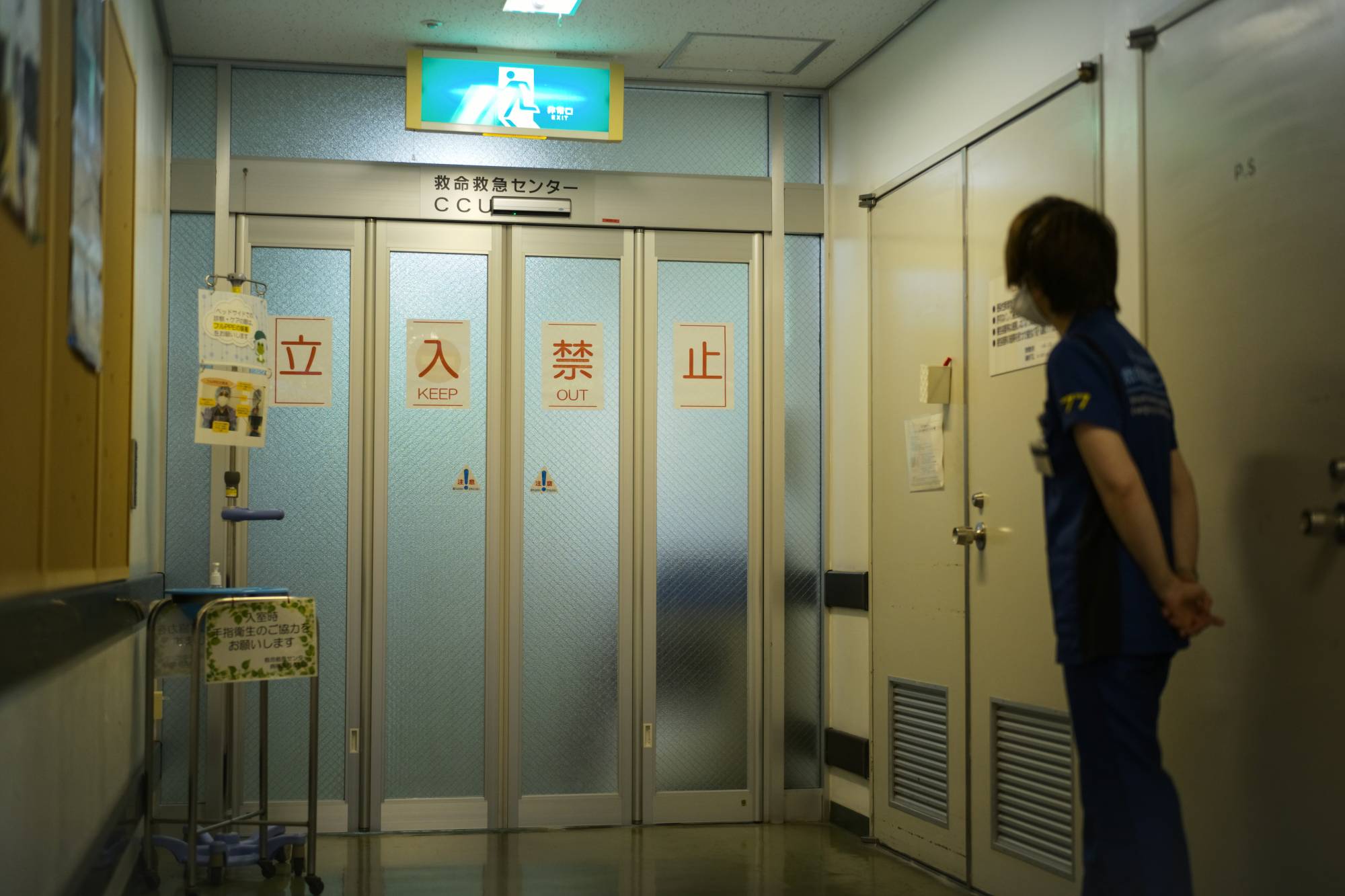


As the country is engulfed by a record-breaking wave of the pandemic, the decision was a major policy shift meant to alleviate pressure on the health care system. But critics say it’s risky and misguided, since moderate COVID-19 patients can suddenly fall ill and require urgent care, and reducing the number of such patients won’t necessarily allow hospitals to take in more severely ill patients, owing to differences in necessary facilities, equipment and specially trained staff.
A week before Suga’s announcement, the Tokyo Metropolitan Government issued a request to medical facilities in the capital to reduce or suspend intensive care and postpone scheduled surgeries and other emergency operations, among other things, by Friday to prioritize the procurement of more hospital beds for COVID-19 patients.
Whether these initiatives inadvertently cost lives or save them, only time will tell, but the burden of responsibility to carry them out will fall on the hospitals themselves.
Itabashi Hospital, Nihon University’s teaching hospital located in Tokyo’s Itabashi Ward, has been treating moderate and severely ill coronavirus patients continuously since January 2020, just weeks after the first cases emerged in Japan.
Like many hospitals, it has undergone seismic changes over the course of the pandemic.
Surgeries have been delayed, safety protocols overhauled, entire departments restructured, staff relocated and resources rerouted to better accommodate COVID-19 patients in varying conditions.
Six of the 16 beds in the hospital’s intensive and critical care units are currently dedicated to COVID-19 patients suffering from serious symptoms, while another 50 beds elsewhere in the hospital have been set aside for moderate cases. There are 73 ventilators at Itabashi Hospital, 12 of which are available for COVID-19 patients.
Even after the policy shift earlier this week, the reduction in mild and moderate COVID-19 patients does not necessarily mean hospitals can immediately accept more serious patients. Severe symptoms often call for hospital rooms equipped with separate air ducts and stationary ventilators.
The hospital possesses four extracorporeal membrane oxygenation machines — cutting-edge technology used occasionally to remedy serious lung and heart problems — but none can be used for coronavirus treatment since they’re often occupied by regular patients.
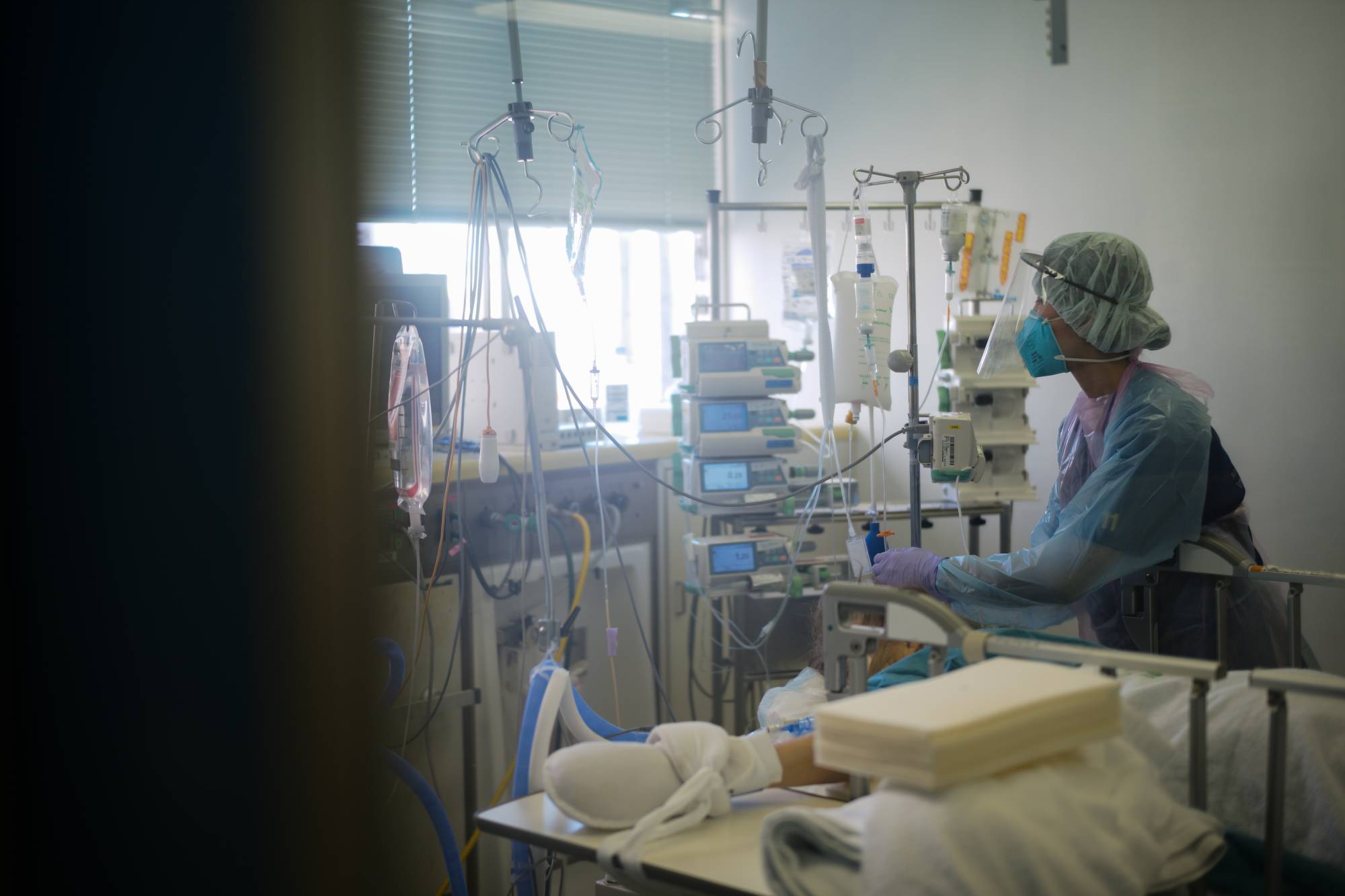


At Itabashi Hospital, as with most medical facilities, visitations have been strictly prohibited since the early stages of the pandemic. Countless patients have died without being able to say goodbye to their loved ones. In some cases, unconscious patients died slowly beyond the reach of their families, while in other cases the relatives of a deceased patient couldn’t see the body until a negative test result came back days later.
“There is still no cure for COVID-19 so it’s difficult, as a health care provider, not being able to explain a patient’s outlook to their family,” said Junko Yamaguchi, deputy director of Itabashi Hospital’s Division of Emergency and Critical Care Medicine.
‘They need more support’
Why Japan’s health care system becomes overwhelmed each time major cities report a high number of new cases has been the subject of heated debate since the beginning of the pandemic.
Many have said it’s because there aren’t enough doctors and nurses due to the industry’s infamously high turnover rate. Some point to the reduction of hospital beds through the gradual defunding of intensive care units as the country’s population dwindles and ages.
But the root of the problem lies in shortsighted public policy and poor hospital management, according to Keiko Yamamoto, president of the Tokyo Nursing Association (TNA).
“If a hospital becomes incapacitated during a pandemic, it’s because management wasn’t doing their job,” Yamamoto said. “And it’s the central government — not nurses — that should be held responsible for the sluggish pace of the country’s vaccine rollout.”
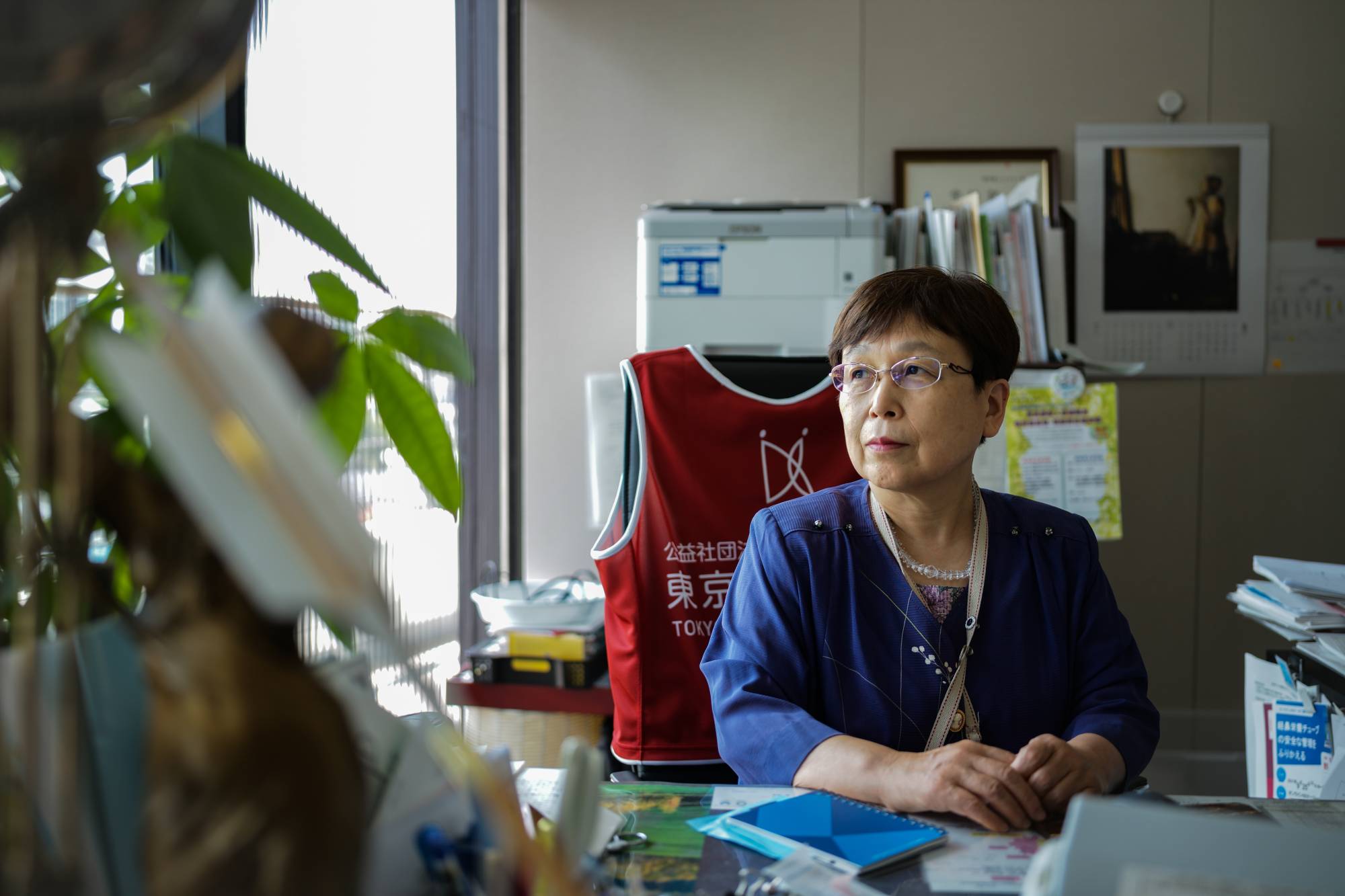


When Japan began to inoculate older people earlier this year, its vaccine campaign was the slowest among industrialized nations by a large margin. Critics said there weren’t enough nurses.
According to the TNA, however, there are over 700,000 licensed but unemployed nurses in Japan who are qualified to administer vaccines.
The country’s rollout has gained momentum in recent months, but vaccine hesitancy could prevent the country from reaching herd immunity. Meanwhile, the country’s virus countermeasures aren’t nearly as effective as they used to be, since orders to stay home or avoid travel are almost entirely voluntary and the public has grown tired of curtailing their activities amid the lengthy pandemic.
While the central government has offered financial support to nurses, only those directly involved in the treatment of COVID-19 patients are eligible. Nurses who don’t treat virus patients are still ineligible even if they were subjected to enhanced safety protocols or the hospital where they work was significantly restructured or temporarily shut down.
In an effort to fundamentally improve the country’s pandemic response, the TNA has been offering free training to nurses on crisis response, infectious diseases and hospital management.
“If society wants nurses to continue fighting this crisis, they need more support and a better working environment,” Yamamoto said. “If we’re sprinting full speed each and every day, we won’t be able to run for much longer.”
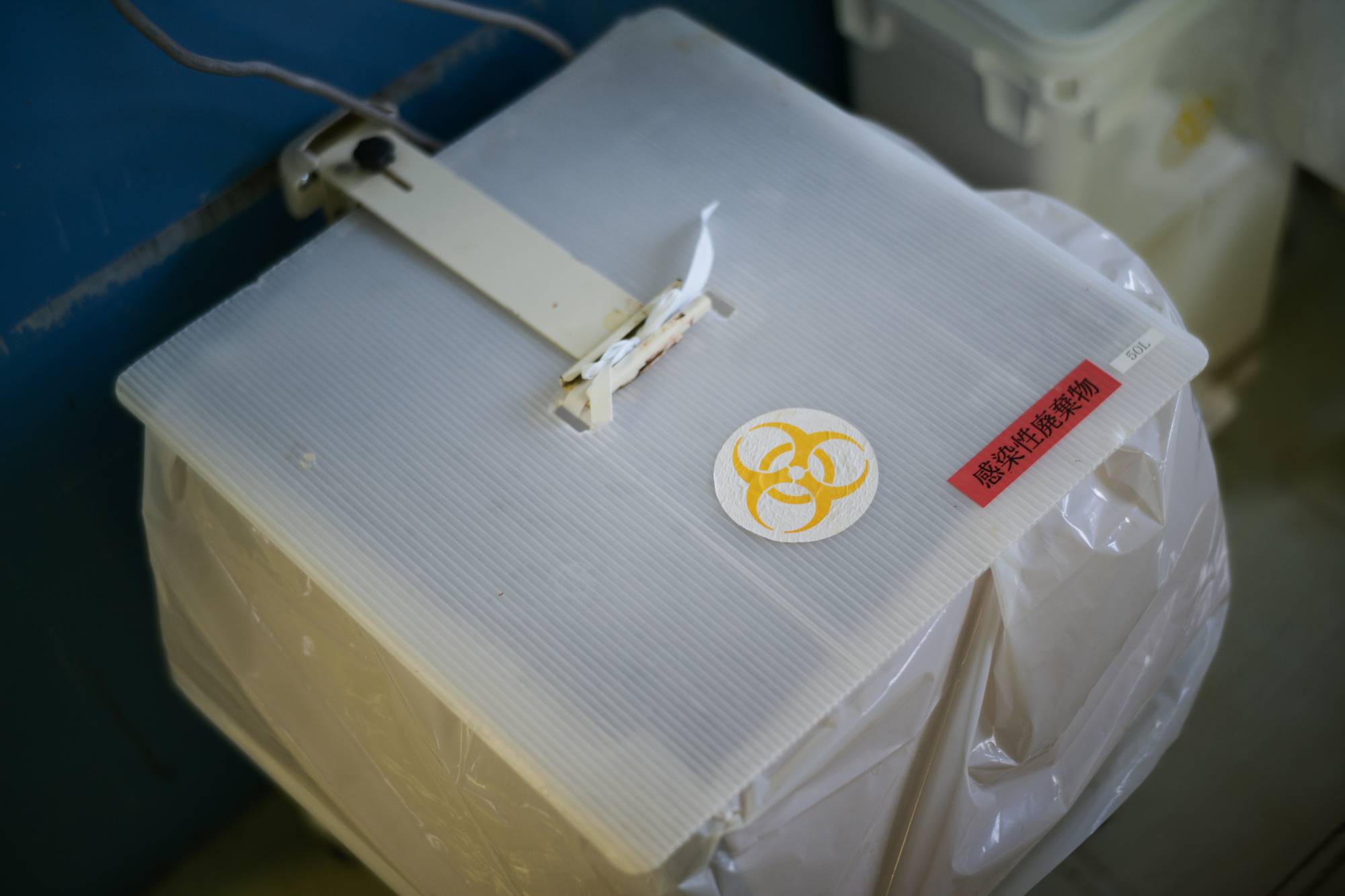


In a time of both misinformation and too much information, quality journalism is more crucial than ever.
By subscribing, you can help us get the story right.
SUBSCRIBE NOW


